Plastic 'threat' to Scottish ocean and coastal wildlife
- Published
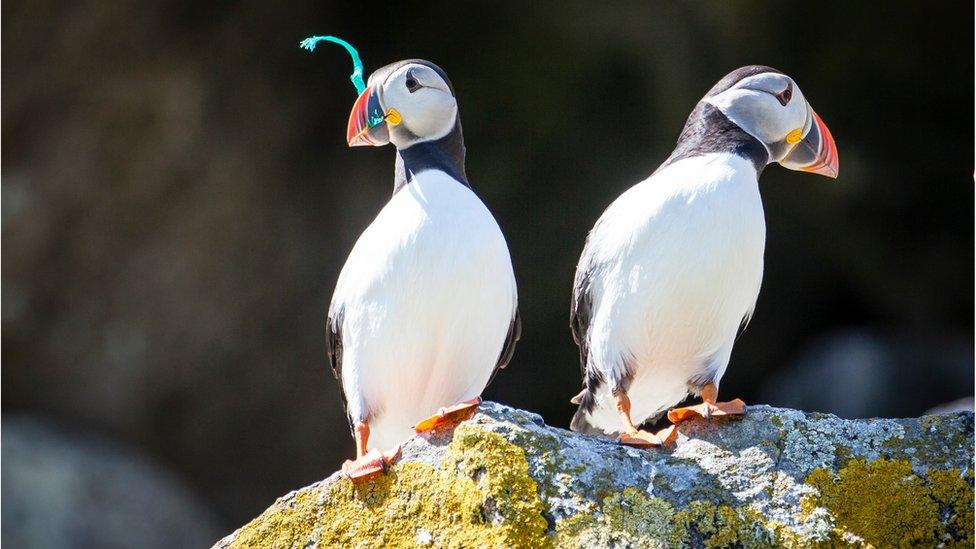
Some birds were spotted with plastic in their beaks on the Shiant Isles
Plastic has been found in basking shark feeding grounds and the habitats of puffins and seals, according to a Greenpeace voyage around Scotland.
Researchers aboard the Greenpeace ship also discovered plastic in the nests and beaks of seabirds.
Beluga II is due to arrive in Edinburgh later to present the findings of its two-month voyage.
The crew was investigating the impact of "plastic pollution" on wildlife and landscapes around Scotland's coast.
The environmental campaign group said it had found plastic bottles, bags, packaging and fragments on every beach it surveyed.
The organisation visited more than 30 beaches in remote areas.
Plastic was also found in "internationally significant seabird colonies" on Bass Rock, Isle of May and the Shiant Isles.
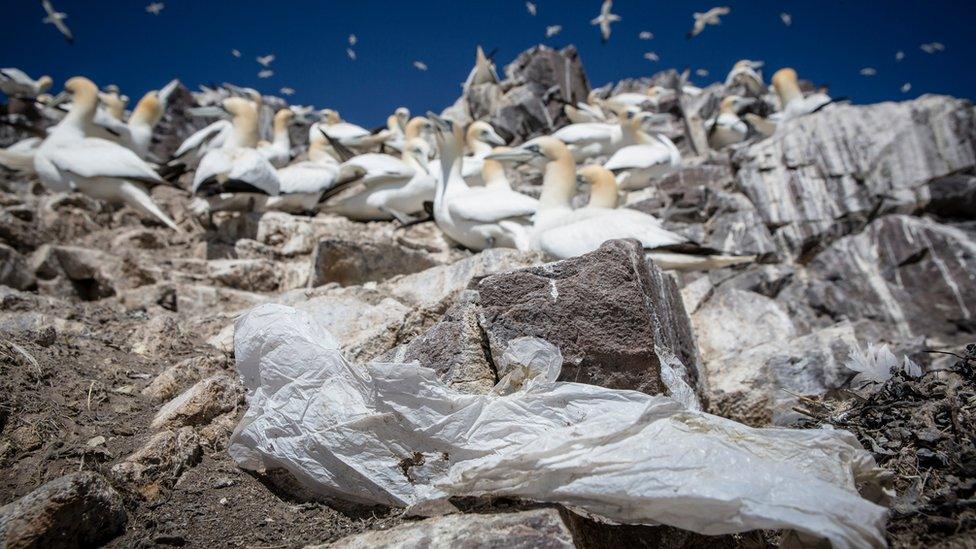
Plastic bags were found on seabird breeding grounds like Bass Rock
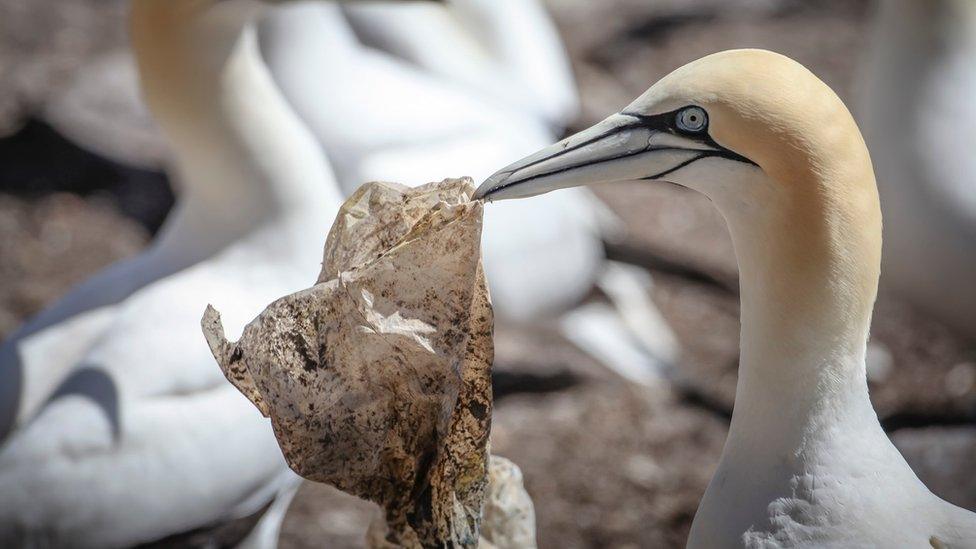
The boat also went to the islands of Mull, Rum, Eigg and Skye.
Tisha Brown, oceans campaigner at Greenpeace UK, said: "It cannot be right that our beaches, seas and the stunning wildlife they are home to should become the final dumping ground for throwaway plastic bottles and other plastic trash.
"With a truckload of plastic entering the ocean every minute, we need urgent action from governments and from major soft drinks companies which produce billions of single-use plastic bottles every year."
Campaigners will deliver a petition to Scotland's Environment Secretary Roseanna Cunningham calling for the introduction of a deposit return scheme for drinks containers in Scotland.
Greenpeace said the schemes have been shown to increase collection rates of plastic bottles as high as 95% in other countries and reduce the number ending up in the environment.
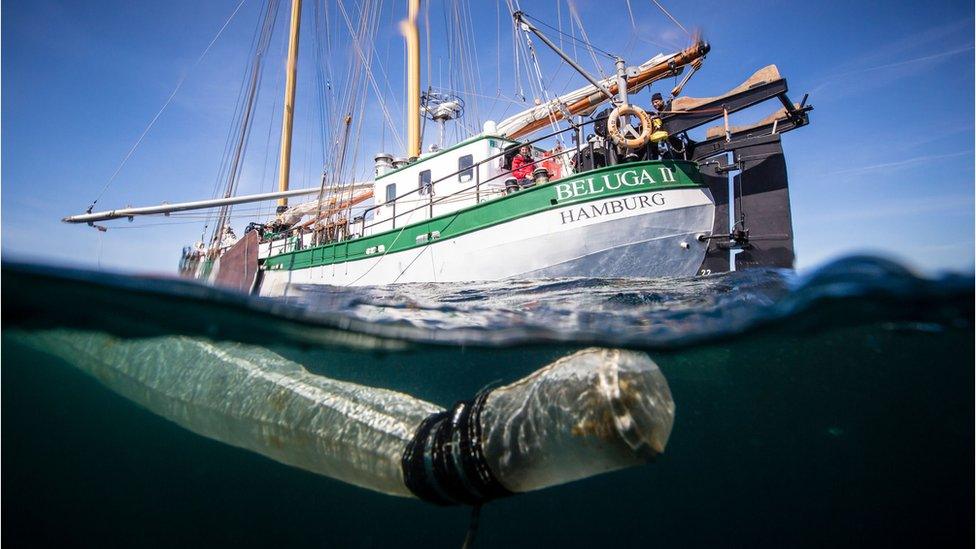
The crew spent two months surveying Scotland's coastline
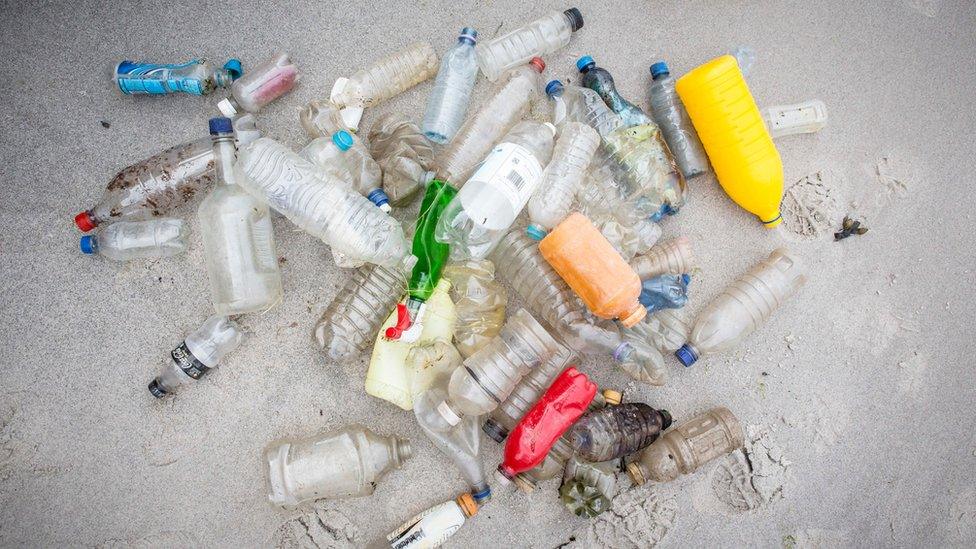
Plastic bottles found on the Isle of Eigg. Greenpeace wants the Scottish government to introduce a deposit return scheme